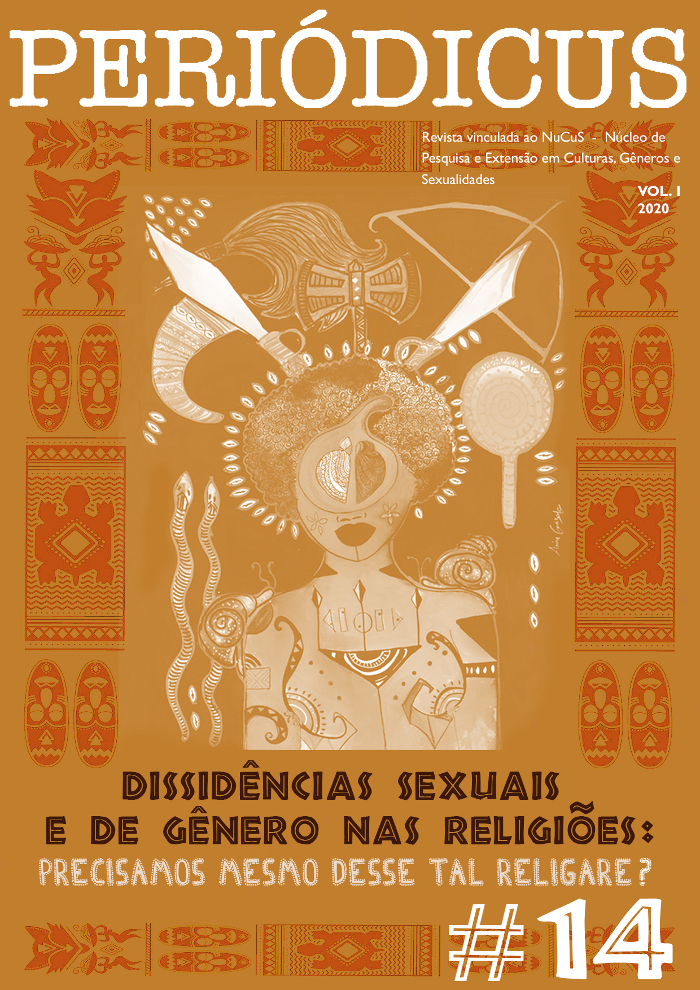Far beyond the Rainbow: homosexuality(ies) and sexual diversity in discursive practices around an Inclusive Church in the city of Recife – PE
DOI:
https://doi.org/10.9771/peri.v1i14.37715Abstract
This article is the result of a qualitative research with exploratory nature under development that analyzes the‘hegemonic clashes’ between discursive fields of inclusive churches and traditional churches around gender and sexuality
issues. Based on Discourse Theory in dialogue with Discourse Analysis, we verify the discursive practices that inclusive
churches reproduce and transfer from traditional churches regarding the relation between Christian religion and sexual and
gender diversity. For such, semi-structured interviews were applied with members of an inclusive church in Recife,
Pernambuco. The social logics of transference, distinction, and Christian restitution were shown to be affirmative and
converted Christian ethos, which, in turn, are interrelated to the conflicting configuration of social and discursive practices
driven by political and religious dispute.
Downloads
Downloads
Published
How to Cite
Issue
Section
License
Copyright (c) 2021 Silas Veloso de Paula Silva, Júllia Alves de Almeida, Priscylla Karollyne Gomes Dias

This work is licensed under a Creative Commons Attribution-NonCommercial 4.0 International License.
Authors who publish in this journal agree to the following terms:
Authors retain copyright and grant the journal the right of first publication, with the work simultaneously licensed under a Creative Commons Attribution Noncommercial License that allows the work to be shared with acknowledgment of authorship and initial publication in this journal, but prohibits commercial use.
Authors are authorized to enter into separate additional contracts for non-exclusive distribution of the version of the work published in this journal (e.g., publishing in an institutional repository or as a book chapter), with acknowledgment of authorship and initial publication in this journal.
Authors are permitted and encouraged to publish and distribute their work online (e.g., in institutional repositories or on their personal website) at any point before or during the editorial process, as this can generate productive changes and increase the impact and citation of the published work (see The Effect of Open Access).








